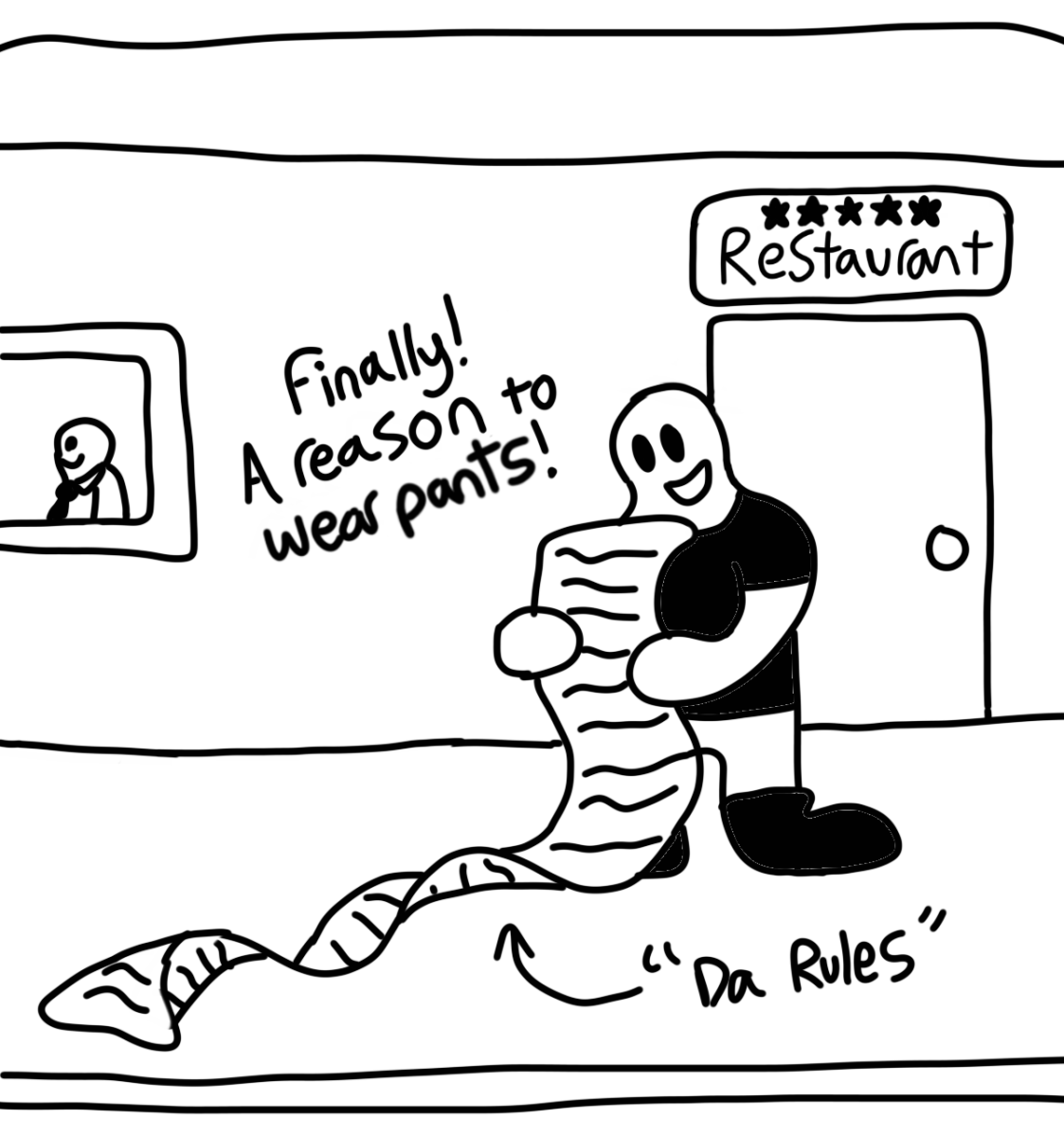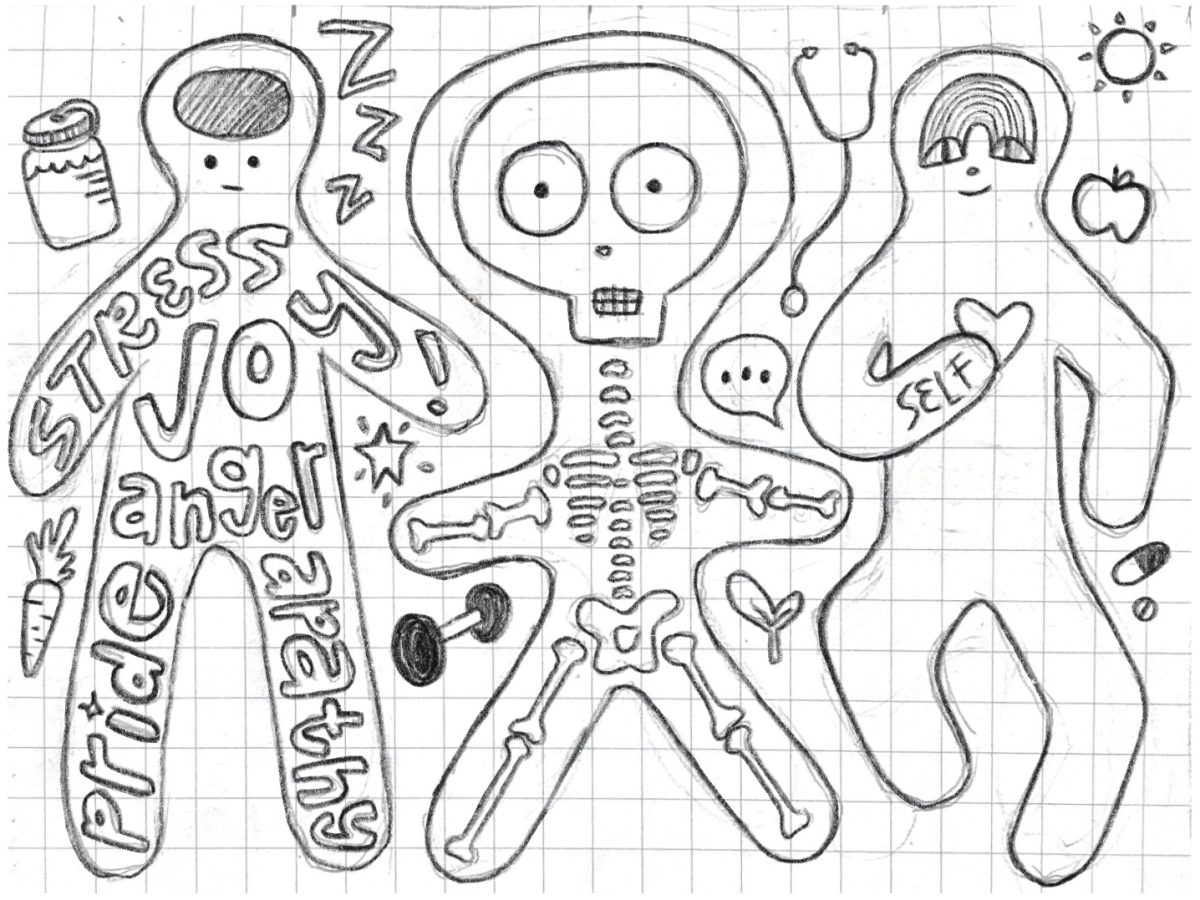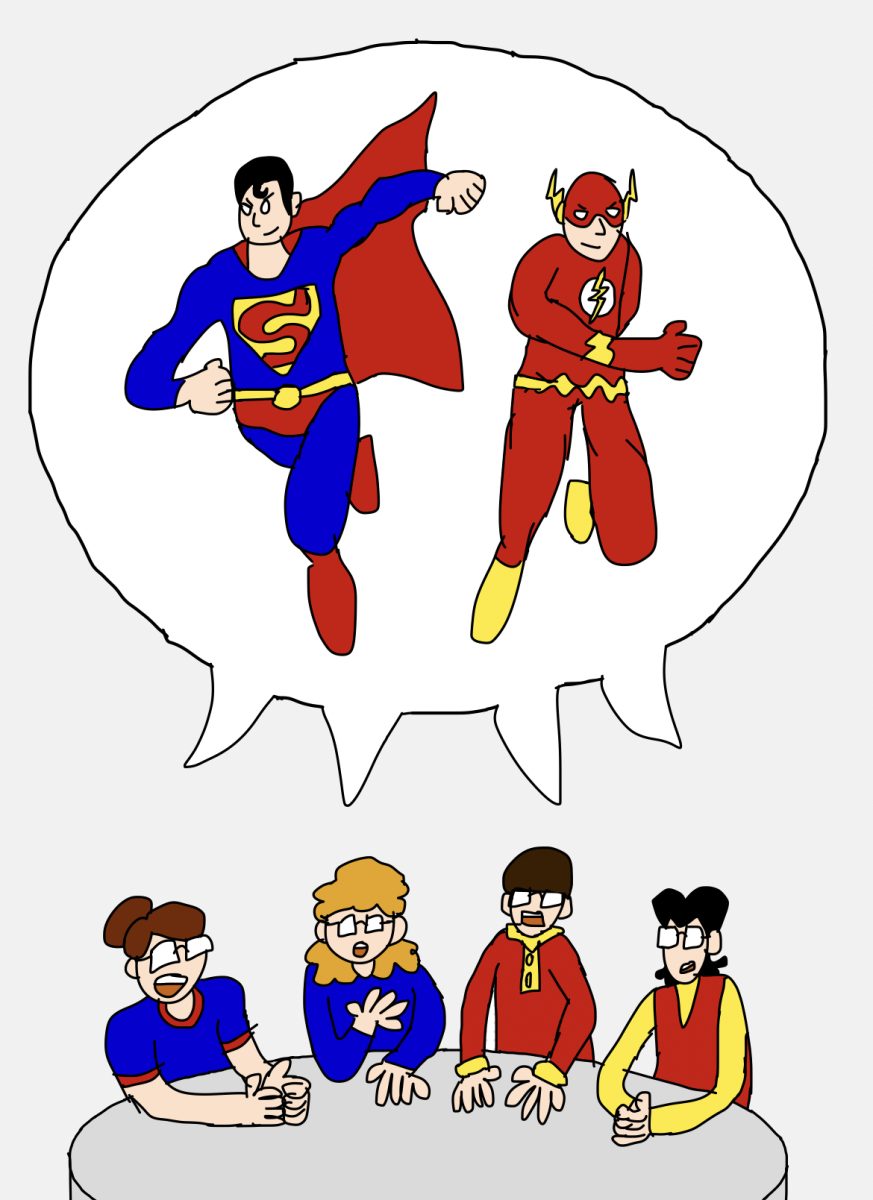It’s a bird! It’s a plane! It’s Superman! Created in June 1938, Superman is one of the oldest and most well-known comic book characters of all time. His name is very literal: he’s a super-man. He’s strong, he can fly, and most importantly for this article, he’s super fast. He is so fast that a debate has grown about whether or not he could beat The Flash, AKA the fastest man alive, in a race. This debate has been prevalent in pop culture for a long time, with references in big screen comic adaptations such as the DC Extended Universe, and in popular tv shows such as Lost, an American drama series on ABC. However, none of these mentions actually answer the question of who would win. In the DCEU, it’s used as a cheap gag in a post-credit scene that cuts to black before we see who wins. The scene in Lost is the only one of these examples that actually discusses the logistics of this debate in detail, but the scene still ends before our questions are answered. In the scene, characters Hurley and Charlie are arguing over who they think would win. Hurley states that in a footrace, The Flash would always beat Superman. Charlie reacts to this point diplomatically by asking, “Why would the Man of Steel agree to a sodding footrace!?” Hurley responds “Er, for charity.” He then brings up how The Flash would win because he’s able to vibrate through any obstacles in front of him, while Superman would have to go around them since he’s not allowed to smash through them. At this point, Charlie is regretting beginning this conversation with Hurley, sarcastically inquiring, “No flying, no smashing, any other restrictions I need to know about? Perhaps we should fit Superman with a pair of Kryptonite…”. He later adds, “Superman can fly around the entire planet.”
Though brief, this dialogue raises several important questions. Firstly, what exactly constitutes a “race” between the two characters? If Superman can fly faster than he can run, why should he be forced to run a race against The Flash? Why wouldn’t he just fly? Dictionary.com defines a race as “a contest of speed, as in running, riding, driving, or sailing.” This definition implies that a race between two people isn’t a proper race if one is flying and the other is running—both would have to be using the same method of mobility in order for this race to be legitimate. Because The Flash can’t fly, both Superman and The Flash would have to be running. To keep things fair, no other power can be used. Just superspeed. Secondly, where would the race be? Since it’s impossible to discuss every possible racing scenario, and to make writing this article easier, this hypothetical race would occur in a perfect environment with no obstacles or unknown variables to affect it. That means neither character faces an advantage or disadvantage.
Thirdly, how do we quantify the superheroes’ impressive feats of speed? Superman and The Flash have both been around for a while. The title of who’s the fastest varies with each comic issue, because they have each had multiple iterations, with different power levels and speeds. While Superman has only been one person over the years (Clark Kent), “The Flash” as a superhero moniker has been used by several characters in the DC universe. For this debate we’re only going to consider one of these characters: Barry Allen. He’s the most well known Flash, as well as the Flash most commonly pitted against Superman in races. Also, the writers behind these characters have changed repeatedly, leading to erratic depictions of them and their powers. Superman can fly faster than light, but at other times he struggles to catch up to a jet. The Flash is fast enough to outrun the embodiment of speed but still allows regular muggers to get away. These characters race multiple times in the comics, and each time a different character wins due to inconsistent writing and heavy-handed plot driving. Based on these varying depictions, we can only take away that they both possess the ability to travel at superspeed, no specifics. Therefore, no feats of speed presented in the media for either superhero will be used in determining their speeds. This theoretical race will be conducted under perfect conditions with no interference, so in order to know who’s faster, we need to know the theoretical potential speeds of each character.
We will use the source of their abilities to determine who is faster. These stay constant with each adaptation of the characters, so they are a reliable source to settle this debate. Superman gets his powers from our solar system’s sun, a natural source. On the other hand, The Flash gets his superpowers from the Speed Force, a mystical and potentially magical cosmic entity that’s the embodiment of motion. Can you guess which generates more power? This is why The Flash will always be faster than Superman, and why he will always beat Superman in a race. Without an otherworldly power like the Speed Force helping him, there will always be a limit to how fast Superman can run without spontaneously combusting. When The Flash runs fast enough to travel through time or to another earth, the Speed Force creates a protective aura around him that stops him and his surroundings from catching fire or disintegrating. Superman has no protection, so he will never be able to run as fast as The Flash. Superman has limits, The Flash does not. It’s that simple.
So if The Flash should always win, why doesn’t he? One word: writers are idiots. They favor Superman because he’s not just a superhero, he’s a symbol of DC. He’s the writers’ golden boy, so they always make sure to make him look good, even at the expense of other characters. Superman already gets all the attention; he doesn’t need any more. Plus, after all the bad press because of Ezra Miller, The Flash needs a boost. Running fast is all The Flash has, so we as a society should just let him have it.





















